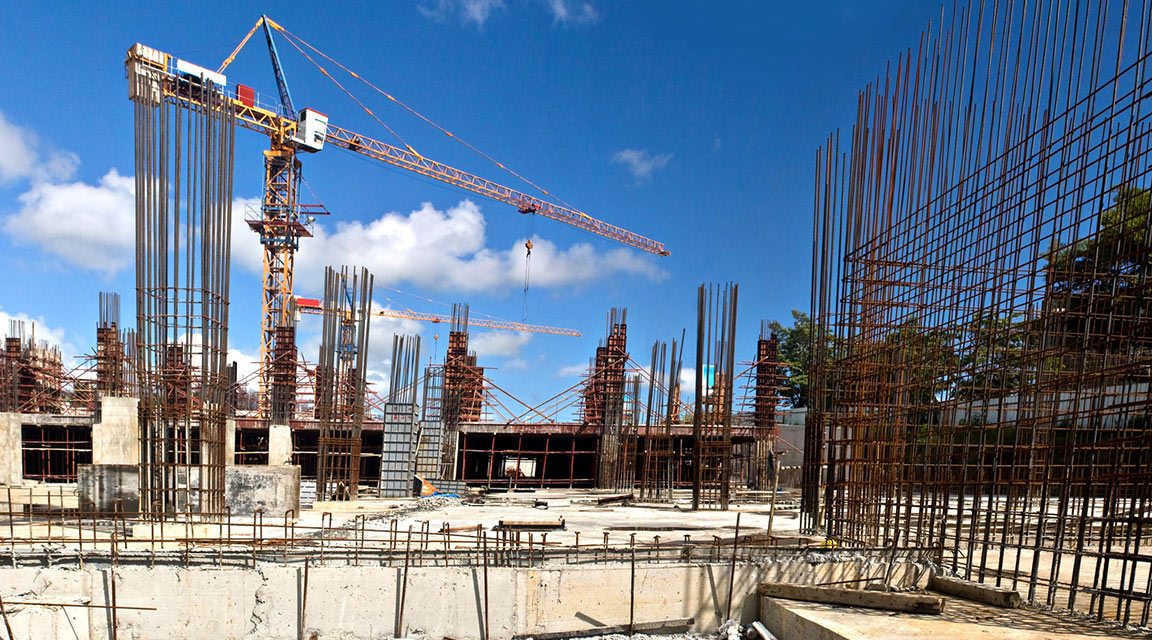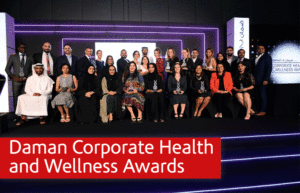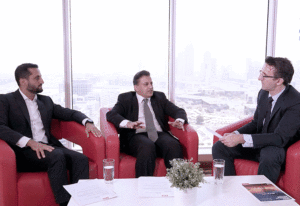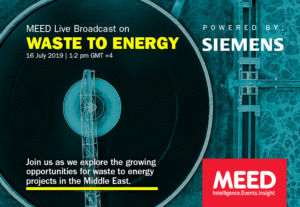

Projects being built today drive growth and attract investment, say the organisers of the MEED Projects Awards, in association with Mashreq.
“In the short term, the projects being built today drive growth, and attract visitors and investment,” says Mohammad Khader al-Shouli, senior vice-president of Mashreq Bank, headline sponsor of the programme. “The sight of world-class projects being successfully delivered sends out the best possible message that this region is progressive and stable.”
Even more important, according to Al-Shouli, is the long-term impact that many construction schemes should consider. “The projects that are being built today are laying the foundations for the future. They put in place the essential building blocks for industrial and business development. They enable happier, better functioning cities and societies. And they make the region more competitive. They also enable the region to train and develop its young people as architects, engineers, technologists and project managers,” he adds.
Recognising excellence
This year, the MEED Projects Awards, in association with Mashreq, will again recognise completed schemes from around the GCC. More than 1,800 projects, with a combined valued of more than $130bn, have been completed in the GCC in the last year, according to regional projects tracker MEED Projects.
The task of evaluating the projects for the awards falls to this year’s jury panel, which includes:
- Abdul Rahim Sabouni, regional representative, The Chartered Institute of Building
- Engineer Rayed al-Arashi, council board member, Society of Engineers – UAE
- Suzannah Newboult, partner, DLA Piper
- Faisal Alsharif, ASG, Riyadh Chamber of Commerce & Industry
- Mark Jamieson, UAE representative, Institution of Civil Engineers
- Robert Jackson, director for Middle East and Africa, Royal Institute of Chartered Surveyors (RICS)
- Sulaiman al-Hudhaili, Oman representative, Society of Engineers
- Engineer Masoud al-Hermi, president, Bahrain Society of Engineers
- Engineer Saad Saud Muhailbi, chairman, Kuwait Society of Engineers
- Terry Willis, director, Middle East, Africa & CIS, Energy Industries Council UK (Middle East Branch)
Quality considerations
This year’s jury panel is looking at a variety of quality considerations when evaluating submitted projects.
Robert Jackson, RICS Mena director, says the construction market in the region is still highly competitive. “Developers and project investors are starting to look to differentiate their products, or the way they deliver their products. RICS is strongly advocating a move towards more collaborative delivery and a partnership approach between the investor/developer and delivery partners. Where this is happening, we are seeing high-quality projects and, in many cases, it’s leading to projects being delivered on programme, on budget and with innovative input from all stakeholders – adding value.”
For his part, Jackson emphasises the need for projects owners and developers to have a strong HSE commitment, and to provide performance statistics, “which then need to be coupled with clear and quantifiable outcomes from the completed project”.
Echoing the sentiments of his colleagues, Mark Jamieson is looking at the added value projects bring to the table. “I like to see that the project is not only well designed, procured and executed, but that it adds value to the built environment through its construction – be it road schemes providing better or quicker access for users, or a new building that delivers efficiencies or reduces carbon footprint.”
Innovation is also a major consideration for the jury panel. DLA Piper partner Suzannah Newboult says: “Demonstrating innovation in the way the project is carried out and completed is more compelling than relying on ‘world first’ buildings, structures or process plants as evidence of innovation.” The panel is also looking for evidence of client satisfaction as a measure of quality.
Key challenges
The projects being undertaken in the region are so ambitious and technically complex that organising the teams and resources needed is a complex challenge. These challenges include coordinating logistics and international teams, solving cutting-edge technical engineering challenges, and working to tight project delivery deadlines. In addition to this, changes are often introduced by the client, or by unexpected problems, while a project is under way – requiring flexibility and ingenuity.
Lower oil prices will continue to pose a strong challenge for project owners and developers. However, this has not been the case everywhere. “Despite having very few oil or gas resources of its own, Dubai actually saw an increase in the value of contracts awarded in 2017,” says Ed James, director of content and analysis at MEED Projects. “At more than $29bn-worth of deals let, the emirate recorded as many contract awards as the next four largest cities and regions in the GCC combined. Its success has been driven by a swathe of new project launches, a vibrant private sector and strong demand for off-plan real estate.”
The latest data from MEED Projects shows that Dubai’s positive performance helped boost the UAE’s overall performance. The nation recorded a marginal increase in annual project awards of $43bn compared with $42bn in 2016. The federation was not the only country to have witnessed projects market growth last year. Oman also grew, posting total annual contract awards of $11.6bn compared with $8.8bn the preceding year. The performance of Oman and Dubai was even more impressive given that every other GCC market fell year-on-year.
According to James, while there is room for cautious optimism in 2018 as oil rises above $70 a barrel, there is still a degree of uncertainty around the impact of VAT on the projects market. “For many project companies already working on razor-thin margins, VAT raises an added complication, especially given the multitude of different building materials and products procured on any given scheme. It is still too early to tell, but if suppliers do not absorb the 5 per cent increase, firms could find that the tax results in inflationary pressures, which in turn would eat into their margins and cashflow. This will especially be the case for any contracts signed pre-VAT implementation if the tax is not specifically accounted for in the contract terms,” says James.
The MEED Projects Awards, in association with Mashreq, is now in the judging phase to determine the winners of the awards at the national level, who will then proceed to compete for regional honours. The GCC winners will be announced on 2 May 2018. The only regional awards programme recognising completed projects for quality, from design through to construction, is also being supported by Al-Shafar General Contracting.
Enter nowTo enter your project for an award, click this linkOrContact Becky Crayman at: T: +971 (0)4 818 0314; E: becky.crayman@meed.com |
You might also like...

Rainmaking in the world economy
19 April 2024

Oman receives Madha industrial city tender prices
19 April 2024

Neom seeks to raise funds in $1.3bn sukuk sale
19 April 2024

Saudi firm advances Neutral Zone real estate plans
19 April 2024
A MEED Subscription...
Subscribe or upgrade your current MEED.com package to support your strategic planning with the MENA region’s best source of business information. Proceed to our online shop below to find out more about the features in each package.








